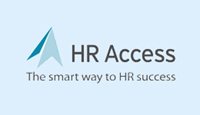Jobs.ca new kid on the block
 Kelowna, British Columbia, entrepreneurs Robert Montgomery and Shaun Pilfold have just launched a new national job portal, Jobs.ca. Their goal is to offer simpler services than industry giants like Monster and Workopolis. The two already own a number of websites, and purchased the domain name Jobs.ca in May 2008 for CAD$600,000.
Kelowna, British Columbia, entrepreneurs Robert Montgomery and Shaun Pilfold have just launched a new national job portal, Jobs.ca. Their goal is to offer simpler services than industry giants like Monster and Workopolis. The two already own a number of websites, and purchased the domain name Jobs.ca in May 2008 for CAD$600,000.
High risk of relapse with psychological problems
 According to a recent study by the Centre for Addiction and Mental Health (CAMH), employees who take sick leave for psychological problems are seven times more likely to take leave in the future than those who do so for physical reasons. The study, done on a sample of 10,000 Canadian workers, underscores that mental disorders are chronic by nature and that relapses are frequent.
According to a recent study by the Centre for Addiction and Mental Health (CAMH), employees who take sick leave for psychological problems are seven times more likely to take leave in the future than those who do so for physical reasons. The study, done on a sample of 10,000 Canadian workers, underscores that mental disorders are chronic by nature and that relapses are frequent.
HRlearning.ca: human resources in a nutshell for non-specialists
 TECHNOCompétences, the Sector Committee for the Information and Communication Technology Workforce, is innovating. It has just launched HRlearning.ca, which covers mastering group leadership techniques, orienting and integrating a new employee, managing a remote team, and more. . . The platform is designed to be a crash course in HR for all managers required to take on human resources duties without it being their specialty. HRlearning.ca is free, and includes 17 training capsules in French and 12 in English. Complementary tools and documents such as interview grids and assessment questionnaires are also available on the site.
TECHNOCompétences, the Sector Committee for the Information and Communication Technology Workforce, is innovating. It has just launched HRlearning.ca, which covers mastering group leadership techniques, orienting and integrating a new employee, managing a remote team, and more. . . The platform is designed to be a crash course in HR for all managers required to take on human resources duties without it being their specialty. HRlearning.ca is free, and includes 17 training capsules in French and 12 in English. Complementary tools and documents such as interview grids and assessment questionnaires are also available on the site.
Hiring hand-in-hand with dismissals this year
 87% of Canadian employers plan on hiring during 2010, but 39% also plan on making targeted workforce reductions, according to a recent Towers Watson survey. It’s a very mixed picture of the Canadian economy, but not an exceptional one—U.S. employers are slightly more optimistic, with 92% planning to hire, and 36% also planning workforce reductions.
87% of Canadian employers plan on hiring during 2010, but 39% also plan on making targeted workforce reductions, according to a recent Towers Watson survey. It’s a very mixed picture of the Canadian economy, but not an exceptional one—U.S. employers are slightly more optimistic, with 92% planning to hire, and 36% also planning workforce reductions.
Soon more women than men on the job market
![]() According to the fifth annual Rosenzweig Report on Women at the Top Levels of Corporate Canada, women accounted for 50% of the Canadian workforce, but only 6.9% of top management positions in 2009, compared to 7.2% in 2008. Poised to outnumber men in the workforce this year, women are still having difficulty breaking through the glass ceiling.
According to the fifth annual Rosenzweig Report on Women at the Top Levels of Corporate Canada, women accounted for 50% of the Canadian workforce, but only 6.9% of top management positions in 2009, compared to 7.2% in 2008. Poised to outnumber men in the workforce this year, women are still having difficulty breaking through the glass ceiling.
Job ads: a stiff price for Barrie police services
 Dave Aspden, the mayor of Barrie, Ontario, has been asked to no longer handle recruiting for the local police force. The reason? It cost the mayor $7,325 to run an ad for police chief in three editions of the Globe and Mail; three insertions at a cost of $2,337 each, not including $313 to place the ad on Workopolis for 30 days. Why did the mayor not use Service Canada’s free Job Bank? Who will foot the bill? That’s still up in the air, because the Barrie Police Services Board has refused to pay a nickel, saying it never authorized the expense.
Dave Aspden, the mayor of Barrie, Ontario, has been asked to no longer handle recruiting for the local police force. The reason? It cost the mayor $7,325 to run an ad for police chief in three editions of the Globe and Mail; three insertions at a cost of $2,337 each, not including $313 to place the ad on Workopolis for 30 days. Why did the mayor not use Service Canada’s free Job Bank? Who will foot the bill? That’s still up in the air, because the Barrie Police Services Board has refused to pay a nickel, saying it never authorized the expense.
One in three Canadians say they’ll never retire
 According to the 20th annual RBC RRSP poll conducted by Ipsos Reid in late 2009, 31% of Canadians currently working say they’ll never retire. 26% of survey respondents also believe that being “old” is a question of perception, and 57% that there is no appropriate age for people to retire, which should be a personal choice. RBC Royal Bank says that the average retirement age in Canada is about 62.
According to the 20th annual RBC RRSP poll conducted by Ipsos Reid in late 2009, 31% of Canadians currently working say they’ll never retire. 26% of survey respondents also believe that being “old” is a question of perception, and 57% that there is no appropriate age for people to retire, which should be a personal choice. RBC Royal Bank says that the average retirement age in Canada is about 62.
HR Access posts 9% increase in turnover for 2009
 HR applications software publisher and HR outsourcing services provider HR Access posted growth of 9% in 2009. Franck Boutboul, Interim General Manager, observed that despite the uncertain economy and a lower rate of growth than that of last year, the company now handles the human resources management records of more 10 million employees worldwide. Today, HR Access has 600 customers spread over 54 countries, and more than 900 employees.
HR applications software publisher and HR outsourcing services provider HR Access posted growth of 9% in 2009. Franck Boutboul, Interim General Manager, observed that despite the uncertain economy and a lower rate of growth than that of last year, the company now handles the human resources management records of more 10 million employees worldwide. Today, HR Access has 600 customers spread over 54 countries, and more than 900 employees.
Maternity top-ups to retain employees
![]() According to a recent Statistics Canada study, mothers who receive maternity top-up payments from their employer are more likely (96%) to return to work within 18 months of the birth of their child than those who don’t (77%). Mothers who get government and private assistance take 48 weeks of maternity leave on average, vs. 46 weeks for those who receive only public assistance. Among those who get no assistance whatsoever, most do not return to work for the same employer. Good to keep in mind!
According to a recent Statistics Canada study, mothers who receive maternity top-up payments from their employer are more likely (96%) to return to work within 18 months of the birth of their child than those who don’t (77%). Mothers who get government and private assistance take 48 weeks of maternity leave on average, vs. 46 weeks for those who receive only public assistance. Among those who get no assistance whatsoever, most do not return to work for the same employer. Good to keep in mind!
Gender equality regressing in Canada
![]() According to an article published in the daily paper Le Devoir in late February, various labour and women’s rights organizations exposed a setback in the equality of men and women in Canada. Moreover, they believe that the government is responsible for this state of affairs, thorough the dropping of a national childcare program, and the abolishment of grants to women’s rights organizations.
According to an article published in the daily paper Le Devoir in late February, various labour and women’s rights organizations exposed a setback in the equality of men and women in Canada. Moreover, they believe that the government is responsible for this state of affairs, thorough the dropping of a national childcare program, and the abolishment of grants to women’s rights organizations.
A first corporate responsibility report for Deloitte
![]() In mid-January, Deloitte published its very first corporate social responsibility (CSR) report. Established after consulting with executives, employees, CSR professionals and international colleagues within the company, along with the David Suzuki Foundation, the United Way, and Corporate Knights magazine, it aims to clarify the company’s CSR policy. In it, Deloitte explains its desire to reduce the negative consequences of its activities as much as possible, promote cultural diversity, ethics and integrity in its ranks, and encourage the sustainable use of natural resources.
In mid-January, Deloitte published its very first corporate social responsibility (CSR) report. Established after consulting with executives, employees, CSR professionals and international colleagues within the company, along with the David Suzuki Foundation, the United Way, and Corporate Knights magazine, it aims to clarify the company’s CSR policy. In it, Deloitte explains its desire to reduce the negative consequences of its activities as much as possible, promote cultural diversity, ethics and integrity in its ranks, and encourage the sustainable use of natural resources.